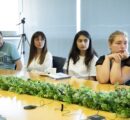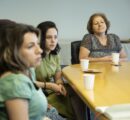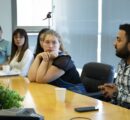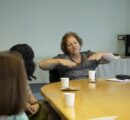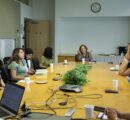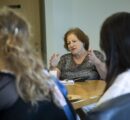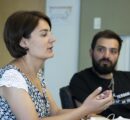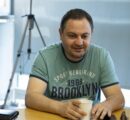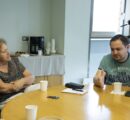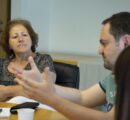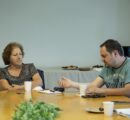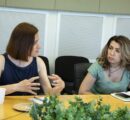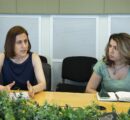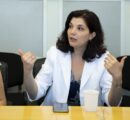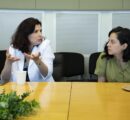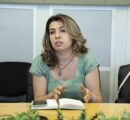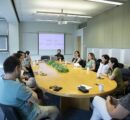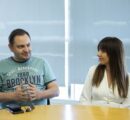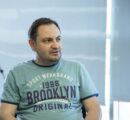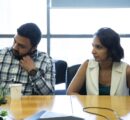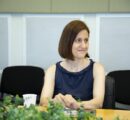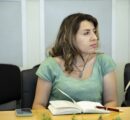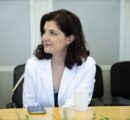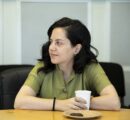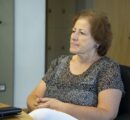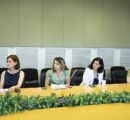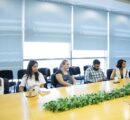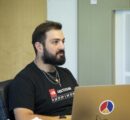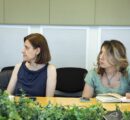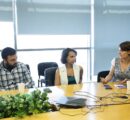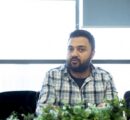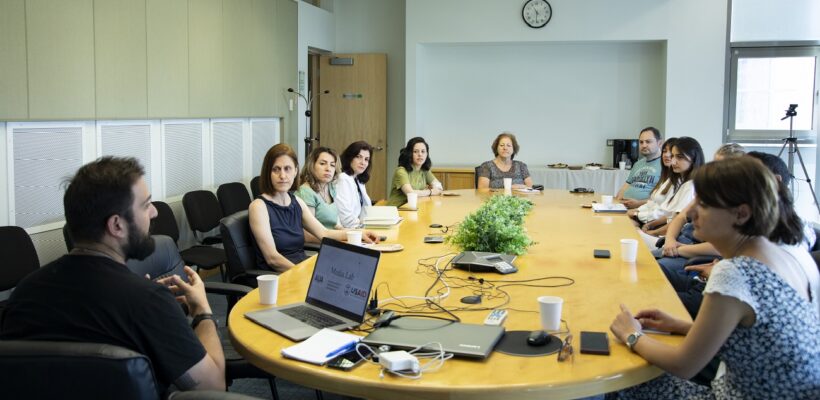
AUA Hosts Focus Group Discussion About Media Lab
2 min readYEREVAN, Armenia — On July 26, the American University of Armenia (AUA) hosted a focus group discussion to gather insights from local journalists, media organizations, and representatives of local universities on the forthcoming USAID/ASHA-funded Media Lab. This capital initiative will expand the enabling environment for creating, retrieving, scrutinizing, and distributing media content in different formats.
AUA Assistant Vice President Anahit Ordyan kicked off the meeting with her welcoming remarks. Narek Ghazaryan, AUA chief communications officer, gave a briefing about the background, core values, and objectives of the Media Lab initiative. He placed strong emphasis on the strategic importance of developing the field through this project and the benefits it would contribute to the University, country, and larger public. Following Ghazaryan’s presentation, Stepan Sargsyan, the Media Lab operations manager, talked about the equipment the Media Lab will house and the process of purchasing it. He also expanded on the University’s procurement process. Ghazaryan then opened the floor for questions and discussion about the facilities and potential user advantages of the Media Lab.
During the discussion, the attendees raised several important issues related to the challenges of modern-day media and journalism in Armenia, such as the unprofessionalism, incompetence, and lack of incentive among some journalists for creating high-quality content that requires concerted effort, analytical work, and appropriate sourcing. Additionally, some mentioned that other capacity deficiencies also arise from the existing shortage of English-speaking journalists. These issues, the participants asserted, not only result in misconceptions about journalists and their important role in society, but also generate distrust in journalism and dismissal of the field.
“Unfortunately, there are very few specialists who can write for international media outlets, and that is what, I believe, the AUA Media Lab will be capable of solving,” said Ani Harutyunyan, journalist and lecturer at the Armenian-Slavonic University.
In addition to raising the aforementioned issues, the media specialists in the focus group recognized the potential power of the AUA Media Lab to create a multifaceted platform for journalistic activity and for discussions, outreach, and training. In that context, many highlighted that the Lab could offer a diverse range of training, spanning special qualification training and English courses specifically tailored to journalistic writing. Furthermore, the Media Lab could initiate collaboration, bringing together students from various universities to engage in group work.
The media specialists at the event emphasized the significance of leveraging AUA faculty and staff to further enhance media capacity for producing high-quality content. By doing so, they projected, scholars and expert practitioners could stimulate and inspire students to explore topics of interest to them, thereby enhancing literacy in media concepts and writing, and ultimately elevating the quality of journalism.
At the conclusion of the focus group discussion, the participants expressed their sincere enthusiasm for meeting again and readiness to support the AUA team in designing and shaping Media Lab activities. Subsequently, a brief questionnaire was circulated among the journalists seeking their input on key issues, as well as encouraging solicitation of viewpoints from other colleagues in the media.
Founded in 1991, the American University of Armenia (AUA) is a private, independent university located in Yerevan, Armenia, affiliated with the University of California, and accredited by the WASC Senior College and University Commission in the United States. AUA provides local and international students with Western-style education through top-quality undergraduate and graduate degree and certificate programs, promotes research and innovation, encourages civic engagement and community service, and fosters democratic values.

